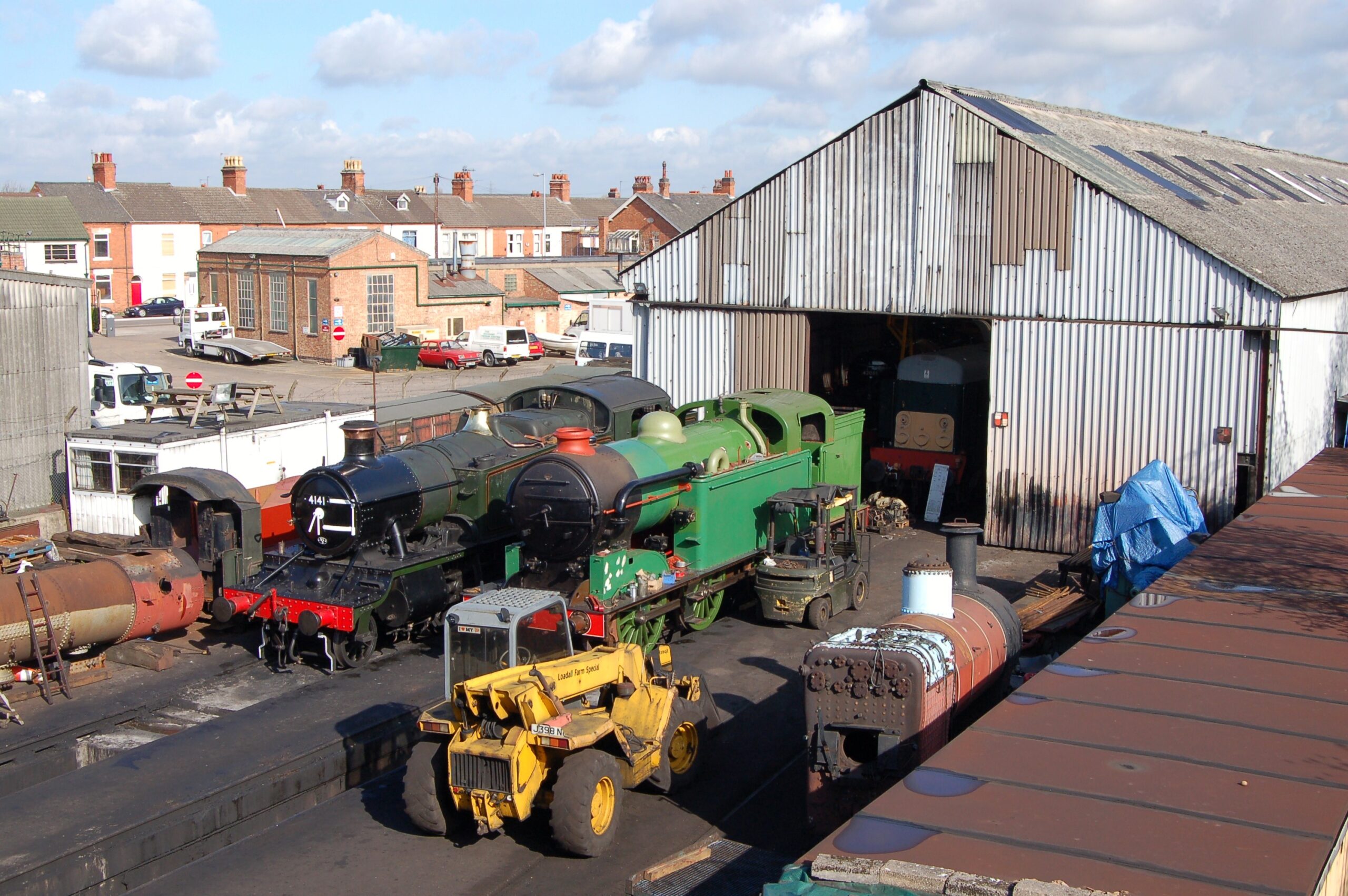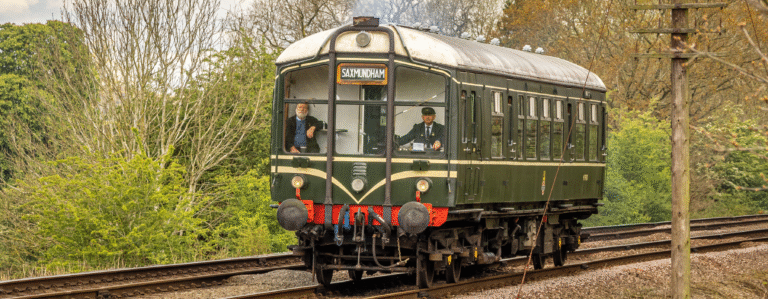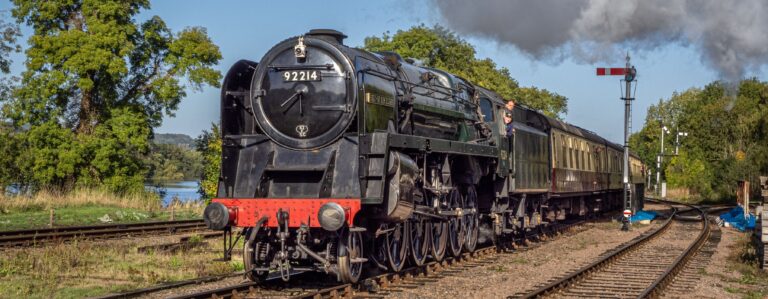Locomotive Works Depot
The Engine Shed at the GCR
The Locomotive Depot and Works at Loughborough is situated north of Central station and just north of the Empress Road Bridge. It is accessed via a path off the north end of the platform past the signalbox and under the bridge. Supervised access is available on most running days.
The shed is the base for all the restoration, repair, maintenance and preparation for running of all the locomotives, both steam and diesel, on the railway. All manner of work is carried out there including the manufacture of boiler stays, nuts, bolts and linkages, the white metalling and making of bearings, the tubing of steam locomotive boilers to the complete stripping down and re-building of complete locomotives and diesel engines. Many locomotives have been restored from scrap yard condition to a standard that fits them for running on the National Network.
The shed has three roads, two equipped with pits for inspection and work underneath the locomotives and has lifting jacks to allow locomotive frames to be lifted enabling wheels to be removed and replaced. At the north end of the shed is a comprehensive machine shop and there is considerable welding equipment ready for use.
Outside the shed further pits are provided to allow for the disposal of locomotives after the working day and for the removal of ash from steam locomotive ash pans. The coal store is outside the shed and staff rooms are provided for all grades of locomotive staff. Concrete pads are provided for boilers under repair and for the base for cranes when undertaking heavy lifts such as when removing and replacing steam locomotive boilers. With locomotives weighing up to 140 tonnes in full working order the shed area is one where care must be taken in moving around.
GCR Home Fleet
79900 Iris
Transmission
Mechanical via Wilson epicyclic gearbox and final drive on bogie axle
Engine
Two AEC 220 engines, each ~150 bhp
Max Speed
~70 mph
Class 55 – 55019
Max Speed
100 mph (25mph on heritage railways)
Power Output
3,300 bhp (≈2,460 kW at engine; ~2,650 hp at rail)
Year of Manufacture
1962
Class 101 DMUs
Power Output
~300 bhp total from two engines
Engine
Two BUT (AEC or Leyland) 150 bhp each
Max Speed
~70 mph
Class 37 – 37714
Power Output
Rated 1,750 bhp
Engine
English Electric 12CSVT V12 diesel,
Max Speed
90 mph (80 mph on some bogie variants)
GCR Home Fleet
GCR Driver Experiences
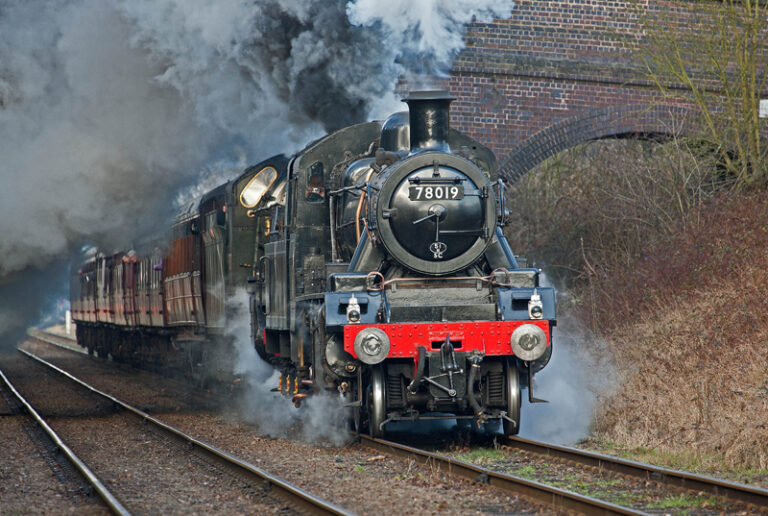
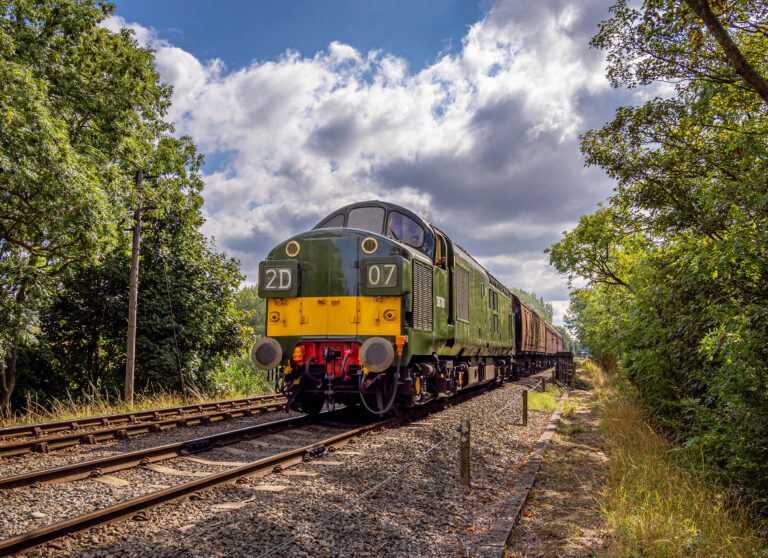
Experience the unparalleled thrill of commanding a locomotive on the UK’s only double-track, main line heritage railway at the Great Central Railway. Our Driver Experiences offer enthusiasts and adventurers the unique opportunity to take control of historic steam or diesel engines, immersing themselves in the golden age of rail travel.
